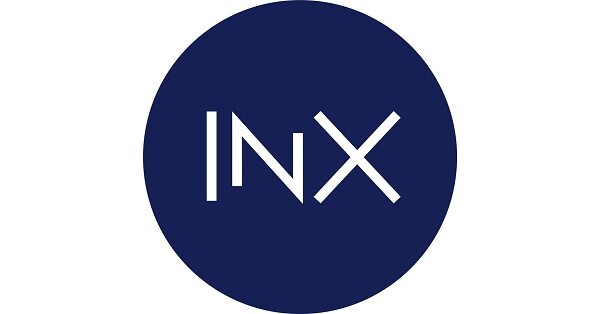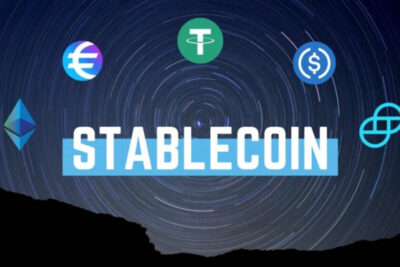

Security Token Explained – The Ultimate Guides Of Security Token In Crypto
24 May 2022
There are two sorts of tokens: utility tokens and security tokens. The majority of people are more acquainted with utility tokens than security tokens since utility tokens are far more prevalent. Ethereum and Litecoin are utility token examples. In contrast, a security token represents an ownership position in an asset, generally a firm, and entitles its possessor to a portion of the asset’s revenues. Security tokens are pretty uncommon.
Security token meaning is securities that are tokenized. On a blockchain, they are digital equivalents of conventional securities. However, blockchain technology offers considerably more flexibility, giving security tokens numerous unique advantages and capabilities that are not achievable with conventional securities. These tokens might represent fractional ownership of any valued object, such as a vehicle, real estate, or shares in a company.
The blockchain technology underlying tokens has proved valuable across several sectors, and security tokens represent one of the most significant applications in the financial sector to date.
What is a security token? How does it work and what is the list of top security token crypto? All information will be explained by bePAY in this post, let’s hit it up!
What Is A Security Token?
What is a security token? Essentially, a security token meaning is a digital representation of conventional securities. There are three major forms of conventional securities: equity, debt, and a debt-equity hybrid. Included among the types of securities are stocks, bonds, ETFs, options, and futures. Theoretically, any of these items may be tokenized into a security token. Soon, it is feasible that security tokens may serve as a viable substitute for stocks and other conventional assets.
It is essential to emphasize, however, that security tokens and cryptocurrencies are not identical. This is a common blunder. Using their blockchains, cryptocurrencies such as Bitcoin, Litecoin, and Bitcoin Cash operate. Security tokens operate on a pre-existing blockchain, hence a security token might operate on the Ethereum blockchain.
In reality, Ethereum is the most popular blockchain for the deployment of security tokens. Numerous businesses use ERC-20 tokens, which are Ethereum-compatible tokens that can execute smart contracts on the Ethereum network (Exploring in-depth information about the Ethereum network)

What is a security token?
Owners of security tokens may benefit from the performance of the token. Occasionally, individuals may also make profits via dividends in the form of more tokens, and they often get additional perks such as voting rights. Consequently, security token holders may enjoy many of the same advantages as stock and other investors. Blockchain Capital is among the most popular security tokens (BCap).
How Does Security Token Work?
The majority of businesses produce security tokens in the same manner. A firm will issue a security token that reflects an ownership claim in the corporation. Then, they create a whitelist of the crypto wallet addresses of investors who will be able to purchase the tokens.
To be included on the whitelist, prospective investors must be able to demonstrate compliance with any limitations and regulations imposed on the security. This requires compliance with know your customer (KYC) and anti-money laundering (AML) requirements at a minimum. While a security token’s protocol can’t integrate all the requirements of several global jurisdictions, corporations may comply with the majority of regulations by limiting who can purchase and keep the token.
While trading via a whitelisted counterparty, most individuals may exchange security tokens as they see fit. Open Finance, Blocktrade, and tZero are among the first exchanges created for this sort of transaction.

Security functions
>> Learn more about KYC Requirements
The Howey Test
In the United States, everything that fulfills the definition of “security” comes within the Securities and Exchange Commission’s regulatory scope (SEC). This consists of security tokens. Despite the seeming simplicity of this, there are still a huge number of tokens that possess both security and utility token qualities, making their future dubious.
The Howey Test is used by the SEC to assess whether or not something qualifies as a security. The test consists of four parameters:
- Investment of money… indicating that a person has invested in products or services
- In a “common enterprise” investors’ finances are either intertwined (horizontal commonality) or there is a direct relationship between the investment’s marketing and its success or failure (vertical commonality)
- With the “expectation of profit“… a profit expectation may be based on fixed returns or capital appreciation.
- “Solely on the efforts of others” that is, if any benefit derived from the efforts of those who advocated the investment, it passes the fourth component of the Howey Test.
When someone invests money in something with the expectation of gaining from another person’s efforts, such investment might be termed security.

What is Howey Test?
What Is The Best Security Tokens List?
Here is a list of top security token crypto exchanges:
Securitize
Since its 2017 debut as a security token crypto exchange, Securitize has successfully tokenized some of the most successful security tokens, including Blockchain Capital (BCAP) and SpiceVC (SPICE). This entity is presently the most successful issuer of security tokens.
In 2021, Securitize developed a platform for buying and selling digital securities. The market is separated into two distinct areas. The “primary market” is a place where STOs (security token offerings) may be purchased, and the “secondary market” acts more like a conventional exchange, with users buying and selling from one another.
Securitize Markets is registered with the SEC, a member of FINRA, and a member of SIPC.
INX
INX was the first decentralized security token crypto exchange in the United States; before its acquisition by INX Limited, it was known as Openfinance. This is an excellent alternative for investors looking to trade in existing security tokens at the moment. They have collaborated with the major token issuers, and these tokens immediately qualify for listing on the market.
Among the characteristics of this trade are:
A worldwide register of qualifying businesses and securities develops a platform for a decentralized securities depository that offers a public governance model to assure the highest level of investor protection and transparency.
From issue through secondary market trading, the technology facilitates a simplified, complaint procedure for conventional alternative assets and token-based securities.
Assets may also be registered with the SEC/EDGAR, and that information may be accessed through the OFN.

INX
tZERO
tZERO was once the most anticipated security token crypto exchange for exchanging security tokens on the globe. Overstock.com is a subsidiary of the company that powers this exchange, and its CEO, Patrick Byrne, conceived it. While the exchange is presently operational, only a few tokens may be traded.
The majority of consumers have been dissatisfied with this exchange owing to a subpar experience, a terrible trading interface, and too few tokens being offered.
Security Token And Utility Token In Comparison
Let’s see the main differences between a security token and a utility token via this table
| Traits | Security Tokens | Utility Tokens |
| Purpose | Investment contract that is representing the legal ownership of a digital or physical asset that has been verified within the blockchain | Serves a specific utility, such as utilization on a platform to redeem a special service or to receive preferential treatment for services in an ecosystem |
| Functions | The value of a token is directly linked to the market capitalization of the entity issuing it | Token value does not relate to the current state of the valuation of a company |
| Risks | Low scam potential thanks to regulation | High scam potential because of insufficient regulation |
| Regulation | Investors and companies have to be in compliance with the Howey Test | Currently little consensus on the regulation of cryptographic tokens of any kind |
>> For more detail about utility tokens
FAQs About Security Token
How Do Security Tokens Function?
In contrast to other cryptocurrencies, security tokens may be digital, liquid contracts for ownership of a portion of an asset. There are several possible uses for this sort of token. Real estate investment trusts (REITs) might issue shares of stock on a blockchain, and these security tokens would represent real estate ownership.
Companies might go public via security token offering (STO) platforms, allowing them access to a broader variety of investors than those who are normally allowed to participate in a company before its initial public offering (IPO) on a major stock market.
What Is The Meaning Of STO Cryptocurrency?
Security Token Offerings (STOs) integrate blockchain technology with the needs of regulated securities markets to increase the liquidity of assets and the accessibility of capital. STOs are generally the issue of digital tokens in the form of regulated securities in a blockchain ecosystem.

What is the meaning of STO cryptocurrency?
Are Security Tokens Governed By Law?
In essence, a security token offering (STO) is a regulated issuance of securities utilizing blockchain technology. Thus, it entails the production of blockchain-based digital tokens. According to the computer code regulations of its blockchain, these digital blockchain tokens may be generated (“minted”), transferred, purchased, sold, and destroyed (“burned”).
Wrapping Up
Tokens are beneficial in a number of blockchain transactions, but it’s vital to understand what you’re purchasing before you part with your cash. Because they represent an ownership position in a corporation, security tokens are subject to regulatory scrutiny, while utility tokens are more like limited-edition collectibles or promotional items.
For investors wishing to enter the crypto market, security tokens may be the most suitable entry point. Since they reflect firm shares in the same way that equities do, the idea should be familiar, and the opportunity to own a piece of the next big decentralized application startup is certainly appealing.
If all you want to do is purchase and hold a little trinket from an ICO for a firm you care about, a utility token may suffice or provide you with a discount in the future. Before purchasing, pay great attention to the token’s redemption conditions to completely comprehend what you are obtaining.

What Is A DApp – The Gateway To Interact Decentralized
22 March 2022
Private Keys – The Crucial Elements To Save Your Fund
27 April 2022
What Are Stablecoins And Why Do You Need Them?
10 March 2022
What Is SegWit? And What Does It Solve For Bitcoin
25 March 2022








